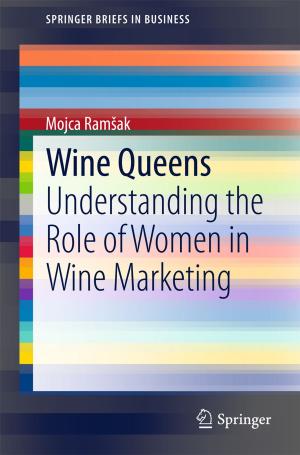Youth Studies in Transition: Culture, Generation and New Learning Processes
Nonfiction, Reference & Language, Education & Teaching, Educational Theory, Philosophy & Social Aspects, Social & Cultural Studies, Social Science, Sociology| Author: | Thomas Johansson, Marcus Herz | ISBN: | 9783030030896 |
| Publisher: | Springer International Publishing | Publication: | January 29, 2019 |
| Imprint: | Springer | Language: | English |
| Author: | Thomas Johansson, Marcus Herz |
| ISBN: | 9783030030896 |
| Publisher: | Springer International Publishing |
| Publication: | January 29, 2019 |
| Imprint: | Springer |
| Language: | English |
This book provides an updated and fresh introduction to recent theoretical developments in youth studies. It expands upon these developments and introduces new discussions and perspectives. It presents three central theoretical traditions in youth studies, and explores the possibilities of redefining some of the central concepts, but also of combining different theoretical perspectives. After depicting the theoretical landscape of youth studies, the book explores generations and new subjectivities. Next, it examines subcultures and transitional spaces, mediatization and learning processes. One chapter is set aside for a discussion on the body, the self and habitus, and this is followed by a chapter on postcolonial spaces. Before presenting its conclusions, the book delves into the development of youth studies, theory and everyday life. All together the book taps into what is happening in the everyday lives of young people, and employs a methodology that can be used to create bridges between young people’s voices and experiences on the one hand and societal and cultural transformations on the other.
This book provides an updated and fresh introduction to recent theoretical developments in youth studies. It expands upon these developments and introduces new discussions and perspectives. It presents three central theoretical traditions in youth studies, and explores the possibilities of redefining some of the central concepts, but also of combining different theoretical perspectives. After depicting the theoretical landscape of youth studies, the book explores generations and new subjectivities. Next, it examines subcultures and transitional spaces, mediatization and learning processes. One chapter is set aside for a discussion on the body, the self and habitus, and this is followed by a chapter on postcolonial spaces. Before presenting its conclusions, the book delves into the development of youth studies, theory and everyday life. All together the book taps into what is happening in the everyday lives of young people, and employs a methodology that can be used to create bridges between young people’s voices and experiences on the one hand and societal and cultural transformations on the other.















